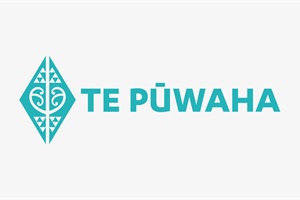New leadership for Te Pūwaha
Published on 11 November 2021

Te Pūwaha – the Whanganui Port Revitalisation project continues to evolve, with new leadership appointed in recent weeks.
Hayden Turoa has been formally appointed as the project director, meanwhile Kahureremoa Aki has taken over the role of project chair from Gerrard Albert.
Kahureremoa Aki has sat on the Te Pūwaha Governance Group for the past year as a community representative and brings a wealth of knowledge and expertise to the chair role. Aki is legally trained as a barrister and solicitor, and has provided advice and support to groups at strategic and operational level, including working within resource consent frameworks and management of projects of various scales. Her whakapapa is to Whanganui, providing her many opportunities to be immersed in her Whanganuitanga.
Aki acknowledges the work undertaken by previous chair Gerrard Albert.
“I want to recognise Gerrard’s mahi on Te Pūwaha to this point, leading the Governance Group to a position where we feel we are all working collectively to improve the health and wellbeing of our Awa, the wider environment, whānau, hapū, iwi and the wider community of Te Awa Tupua.”
Aki is passionate about Te Pūwaha and its potential and ability to work within the Awa Tupua framework.
“This way of working is a true collaboration where Te Awa Tupua is addressed as a whole, and the connection we all have with our Awa, as the communities of Te Awa Tupua remains valid,” she says.
“Our emotional connection with the Whanganui River drives our duty of care towards our Awa - this project does that by aiming to improve the health and wellbeing of Te Awa Tupua.”
“As we look ahead, my aspiration for Te Pūwaha is for the communities of Te Awa Tupua to realise the potential of Te Awa Tupua to provide for all in ensuring mouri ora, mouri awa and mouri tangata.”
“Te Pūwaha is premised on relationships and it is vital that all parts of our community see their value and voice within the project.”
Project director Hayden Turoa agrees with Aki’s sentiments.
“I want to ensure that the work we do on Te Pūwaha supports the mahi of our hapū and iwi throughout the Awa, and contributes to their kaupapa, seeking to improve the health and wellbeing of Te Awa Tupua.”
Prior to his formal appointment, Turoa has provided project leadership to Te Pūwaha over the past year. This has included identification and management of a series of initiatives to ensure Te Pūwaha is Te Awa Tupua compliant, while also developing the frameworks for the port revitalisation in relation to broader stakeholder engagement and in the resource management space.
For Turoa, working on Te Pūwaha is a great opportunity to help others understand the mana (status and integrity) of Te Awa Tupua. This requires a paradigm shift that celebrates our relationship to the natural environment.
“Te Pūwaha is the first foundational step, the first true exercise for management of a project under the new legal status of the Whanganui River as Te Awa Tupua. I feel so fortunate to be in a position to contribute to this long and important history of our Awa.”
Turoa will provide an overview of inter-related work streams led by project partners Whanganui District Council, Horizons Regional Council, WDETT (Port Employment Precinct) and Q-West Boat Builders, while also working closely with Whanganui iwi hapū collective, Te Mata Pūau. Te Mata Pūau plays an integral part in the success of the project, as Te Pūwaha seeks guidance and approval from them to ensure Te Awa Tupua and Tupua te Kawa values are upheld.
“When looking at the project so far, I have really enjoyed and appreciated learning from the hapū and iwi as they guide the project. It shows how the port revitalisation can be community led to create the community’s vision in line with Tupua te Kawa values,” says Turoa.
“It is also important to acknowledge the work of the project partners as they continue to adapt and build a greater understanding of the Te Awa Tupua framework. The values based approach driving Te Pūwaha has provoked a better way of working alongside Te Awa Tupua, local and regional councils, Q-West Boat Builders, Te Mata Pūau and community.”
“The learning we as a collective have experienced is noticeable across all facets of the project, and the feedback we receive from the community has been positive. People feel like they are involved and have opportunities to be consulted and engaged at this stage of Te Pūwaha project planning and design, which is a good testament to the leadership from the project partners.”
Community engagement on the project is ongoing, and members of the public can register their interest for updates by visiting www.whanganui.govt.nz/port.
ENDS